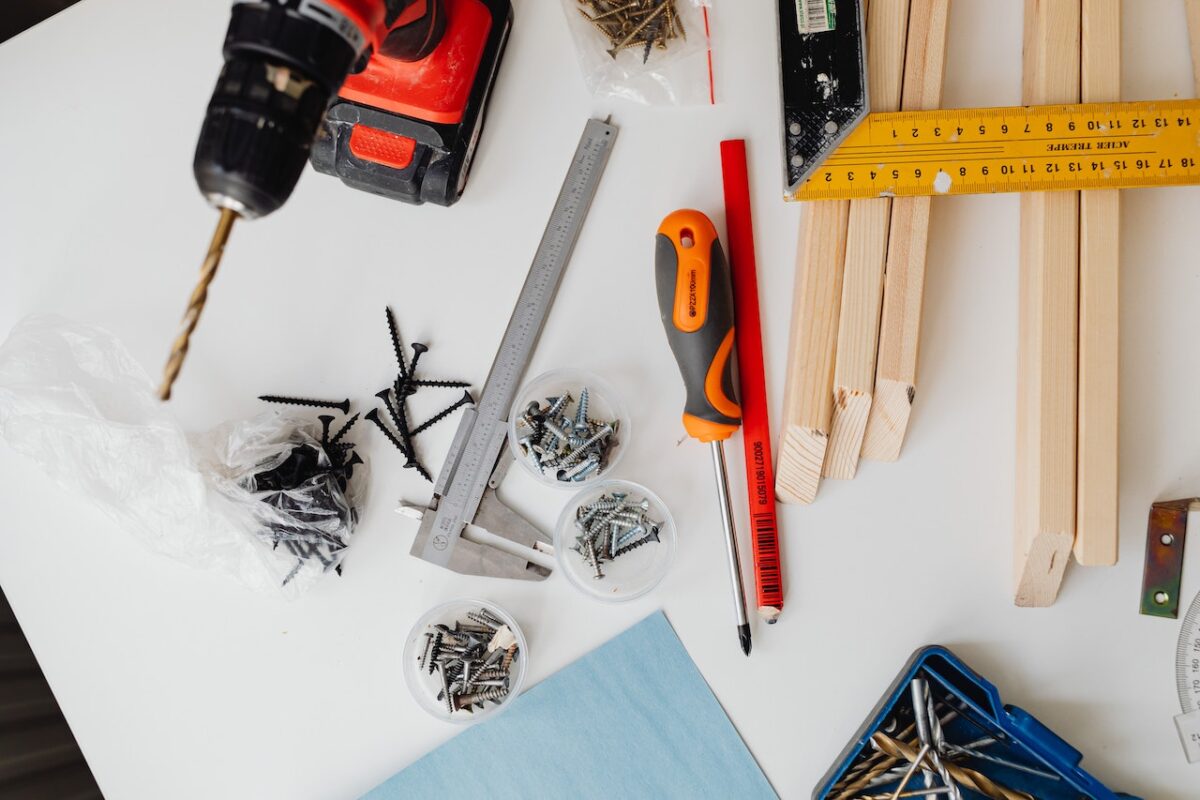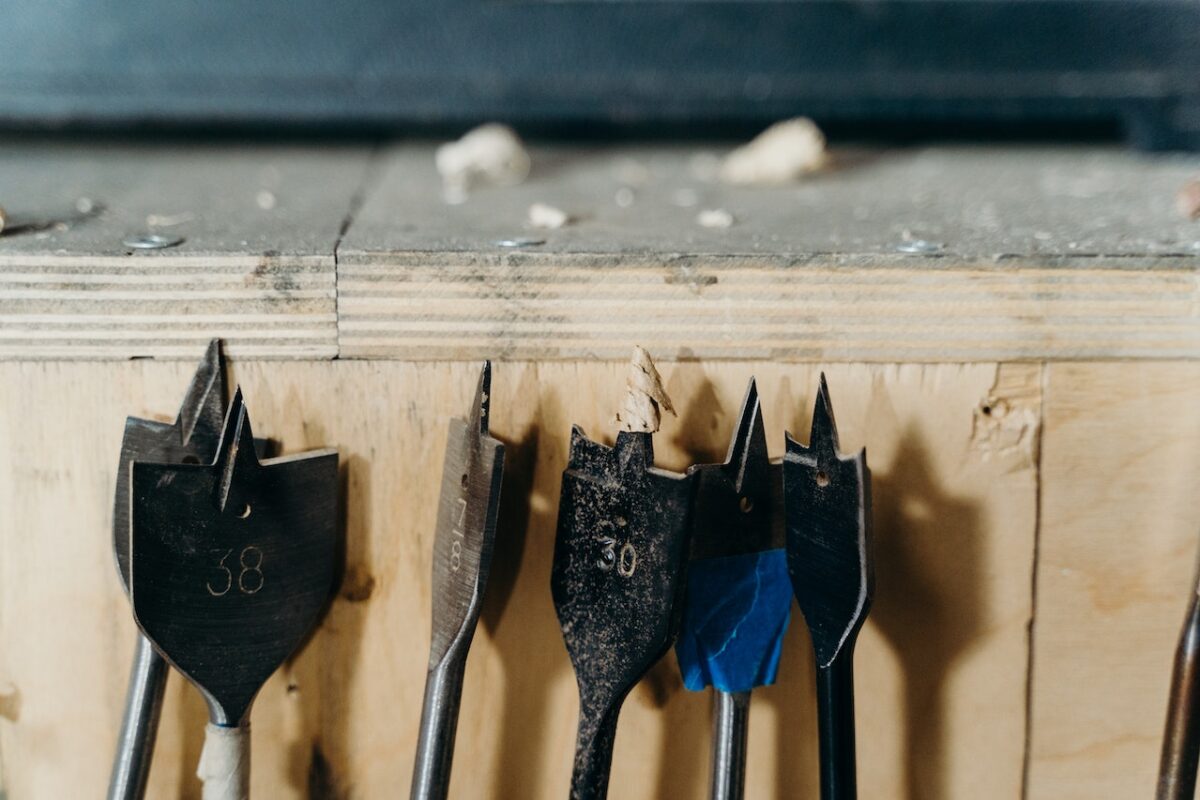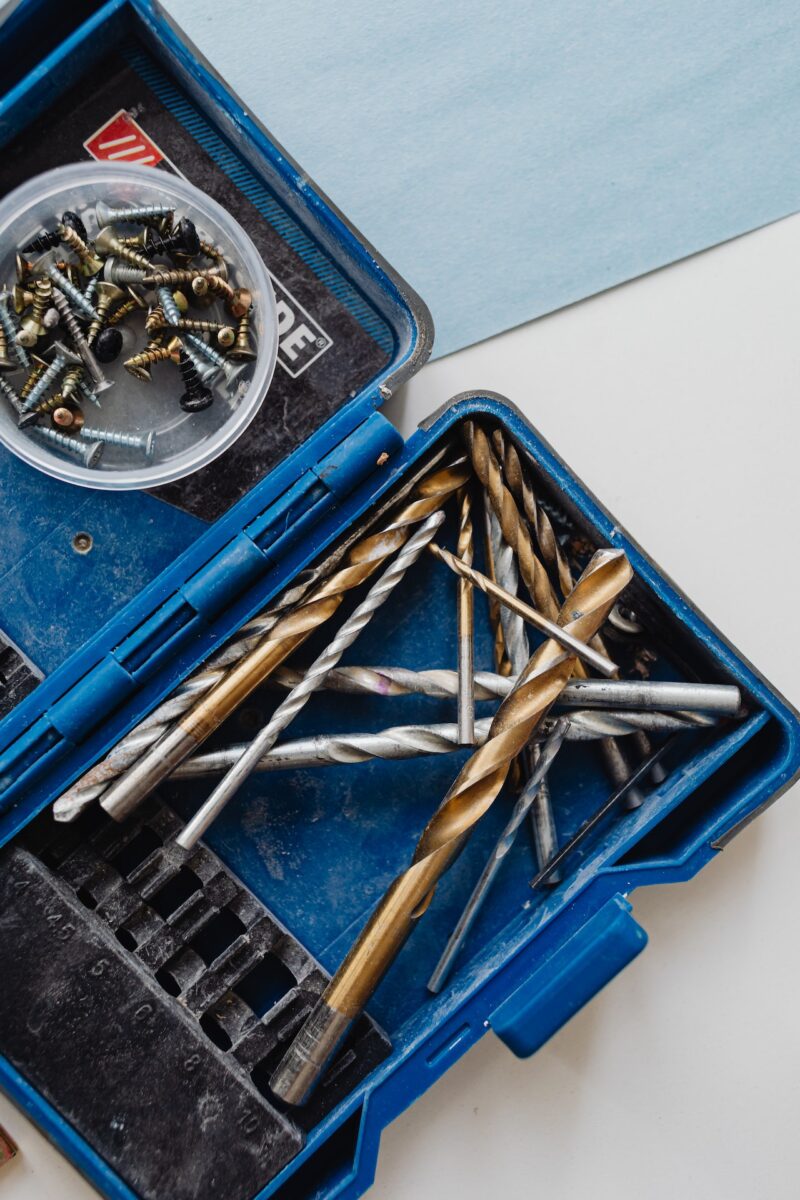Many people would worry about rusting if they have quality drill bits. If you want to know how to keep drill bits from rusting, you’ve come to the right place. In this article, I will discuss the methods to prevent rusting and ways you can remove them.
Contents
How to Keep Drill Bits From Rusting
Drill bits are mostly metallic, so it’s not a surprise that they can get rusty. There are many ways that you can keep your bits from rusting. It’s all about regular maintenance and keeping it consistent.

Effects of Rust on Drill Bits
Various effects happen to your bits when they rust. First, they may look orange, and the surface becomes rough. This weakens the bit because some parts have turned powdery.
Rust will make the bits less effective at drilling. It may even cause the bits to fall out, slip, or walk. Rust also eats away at the surface, making the drill useless, and you may need to replace your drill bits.
Rust may also make your bits rough or stuck. Therefore, it may cause problems like the bit getting hot or the bit sticking into the hole and making it hard to get out.
Why Drill Bits Get Rusty
Unlike dirt and dust, rust forms in your bits differently. Strangely enough, dirty bits tend to rust less because of the layer of protection the dirt provides. That’s not to say you shouldn’t clean your bits regularly.
Rust is a type of corrosion. Corrosion occurs when acidic substances come in contact with metals which causes rust to form. Rust forms from steel corroding after iron particles are exposed to oxygen and moisture.
Rust mostly forms through atmospheric corrosion. Humidity brings along vapor which is water particles that cause corrosion and rust.
Factors Affecting Rust
The time and amount of rust vary from different bits. There are also factors that you should know that accelerate the formation of rust on your bits. These are:
Metal Type
Some metals rust faster compared to others. Generally, iron and steel rust faster compared to aluminum or stainless steel. Why is that? The reason for this is because of the difference in their electrochemical potential.
Some metals rust faster because they are pure metals. Pure metals tend to react more so they are more prone to rusting. Hence, that’s why mixed metals like aluminum and stainless steel rust less compared to pure metals.

Moisture
Rust requires water to appear. Water can manifest in your bits through moisture. If moisture condenses, it turns into liquid form, which hastens the formation of rust.
Hence, you should keep your bits in storage where moisture cannot enter. Keep your bits in non-humid environments as much as possible and wipe them after using them in a humid environment.
Oxygen
Rust also only appears when there is oxygen. There’s really not much you can do about this since oxygen is mostly present everywhere. Just do note if you live in a dry climate, your bits won’t probably rust as much.
Removing Rust from Drill Bits
If your bits have already rusted, then you may want to remove the rusting so it won’t spread to the whole bits. Most people don’t actually know how to remove rust from their bits.
For small rust areas, you would only need some tools and household products or rust-removing products, which is what you would do for bits. For larger rust areas (on your drill), consider using a permanent protective coating.
Luckily, I’ve compiled some of the best methods you can use to remove rust from your bits. These methods will keep your bits in good condition and maintain their sharpness.
Oil and White Vinegar
Vinegar is a popular product that’s known to remove rust. Combined with oil, it provides a rust-removing and rust-protection coating. You would need an old toothbrush or a scrubbing pad for this method to work.
- First, scrub the bits to clean them of dirt and rust. The scrubbing usually removes most of the outer layer of rust and will make it easier for the vinegar to remove the rest.
- After scrubbing, you can soak the bit in mineral oil or apply mineral oil to the bits for 30 minutes. The oil will soften up the rust making it easier to remove.
- After 30 minutes, scrub again using a brush to remove oil and some rust
- Clean the bits with a piece of cloth to remove excess oil. Dip the bits in white vinegar for 30 minutes.
- After 30 minutes, scrub again thoroughly as white vinegar easily removes rust. Once you are satisfied with your work, clean the bits with a paper towel.
Baking Soda
You can also use baking soda if the rust doesn’t cover a large area. Baking soda softens up rust making it easier to remove. Here’s how you can do it:
- Clean your tools and remove any dirt or grease to prepare them. Dry it off using a towel or let it sit until it’s dry.
- It’s now time you make your rust-removing paste. Mix baking soda and water in a small dish until it becomes sticky or paste-like.
- Apply the paste to the rusted area and leave it for at least two hours.
- After two hours, scrub the area with a brush. Keep scrubbing until you’re satisfied that all the rust is removed.
- Rinse the paste off the bits and let it dry. After drying, your bits are now ready for use.

Oxalic Acid
Oxalic acid is your surefire method for removing rust. It’s designed to dissolve tough-to-remove rust. To use oxalic acid to remove rust, here are the steps:
- Prepare your bits by cleaning them off and removing dirt and grease. Let it dry after cleaning.
- Since oxalic acid can harm the skin, wear safety equipment like rubber gloves and goggles.
- Prepare a large container enough for the bits to fit. Pour water enough that the bits submerge in it. For every gallon of water, add three tablespoons of oxalic acid. Make sure to mix slowly, so the mixture doesn’t splash out and come into contact with your skin.
- Place your bits inside the container and let it soak for 20 minutes allowing the rust to come off the bits.
- After letting the bits soak, you can just rinse the rust off without using a brush. Ensure you rinse off the acid so the bits can be safely used.
Related Question
What Oil Keeps Tools From Rusting?
The best oil to keep tools from rusting would be Camellia oil. It’s mostly used with knives and other fine tools. Camellia oil has good anti-rusting properties.
What Lubricant Dissolves Rust?
Most people would recommend WD-40 rust remover soak as the go-to lubricant for dissolving rust. It can safely and effectively remove rust without acids or caustic chemicals.
Conclusion
There are many ways you can keep your bits from rusting. Some rust-protection methods even use products that are available at home. Ensure you follow the methods correctly, or it might not provide the maximum protection.

